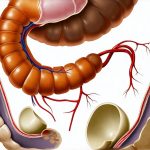The simple act of chewing—something we often take for granted—is profoundly linked to our overall well-being, extending far beyond just breaking down food. It’s a foundational element of digestion, impacting nutrient absorption, gut health, and even mental state. Modern life, with its fast pace and convenience foods, has largely stripped away the deliberate practice of chewing, leading to increasingly common digestive issues like bloating, gas, and indigestion. Many individuals unknowingly contribute to their discomfort by rushing through meals, prioritizing speed over thorough mastication, effectively placing a greater burden on later stages of the digestive process.
This disconnect between our eating habits and our bodies’ natural processes is where mindful eating comes into play. It’s not about restrictive diets or calorie counting; it’s about cultivating awareness around how we eat—paying attention to sensations of hunger, fullness, and the texture and taste of food. By re-integrating a conscious approach to chewing and incorporating principles of mindfulness, we can significantly improve our digestive comfort, enhance nutrient uptake, and foster a more harmonious relationship with food and our bodies. This is about rediscovering an ancient wisdom that’s been largely forgotten in contemporary lifestyles. Understanding portion control can also greatly improve your digestive experience.
The Mechanics & Benefits of Thorough Chewing
Chewing isn’t merely the first step in digestion; it’s arguably one of the most important. When we take the time to thoroughly chew our food, several physiological processes are initiated right within the mouth. Saliva, containing enzymes like amylase, begins breaking down carbohydrates, initiating chemical digestion before the food even reaches the stomach. The physical breakdown of food into smaller particles increases its surface area, making it easier for digestive enzymes in the gut to work effectively. This also reduces the strain on the stomach and intestines, minimizing the risk of indigestion.
Beyond the purely mechanical aspects, chewing stimulates the vagus nerve – a critical component of the parasympathetic nervous system responsible for “rest and digest” functions. Vagal nerve stimulation promotes relaxation, lowers heart rate, and enhances digestive activity. In contrast, rapidly consuming food bypasses these crucial initial stages, putting excessive pressure on the stomach to do all the work, potentially leading to bloating, gas, and discomfort. Furthermore, incomplete digestion can lead to nutrient malabsorption, meaning we aren’t reaping the full nutritional benefits from our meals. A deeper understanding of digestive balance can further improve this process.
Consider this: a well-chewed bite is easier for the body to process, requires less energy expenditure during digestion, and allows for optimal absorption of vitamins and minerals. This isn’t just about feeling better after eating; it’s about maximizing your body’s ability to utilize the nutrients you consume. It’s an investment in long-term health that starts with a conscious choice to slow down and savor each bite. Many people also find relief by including magnesium in their diet.
Mindful Eating: A Pathway to Digestive Harmony
Mindful eating is a practice rooted in present moment awareness, encouraging us to observe our thoughts, feelings, and physical sensations without judgment during the act of eating. It’s about shifting from autopilot mode—where we eat mindlessly while distracted—to a state of intentionality and appreciation for the nourishment food provides. This isn’t about dieting or restriction; it’s about cultivating a healthier relationship with food that supports both physical and emotional well-being.
One core component of mindful eating is paying attention to hunger and fullness cues. Many people eat based on habit, emotion, or external cues (like portion sizes) rather than genuine physiological needs. Mindful eating encourages us to pause before eating and ask ourselves: “Am I truly hungry?” And during the meal, to check in regularly with our bodies to gauge levels of satiety. This can help prevent overeating and promote a more intuitive approach to food intake.
Furthermore, mindful eating incorporates all senses – noticing the colors, aromas, textures, and flavors of food. It’s about savoring each bite, appreciating the journey from farm to table, and acknowledging the nourishment it provides. By slowing down and engaging our senses, we not only enhance the enjoyment of eating but also improve digestion by giving our bodies ample time to prepare for and process the incoming food.
Recognizing & Addressing Digestive Discomfort
Digestive discomfort manifests in many ways – bloating, gas, heartburn, constipation, diarrhea, abdominal pain—and is often a sign that something isn’t quite right within the digestive system. Identifying triggers is crucial for managing these symptoms effectively. Common culprits include:
– Food intolerances or allergies (lactose, gluten, etc.)
– Eating too quickly and not chewing thoroughly
– Stress and anxiety
– Dehydration
– Lack of fiber in the diet
One effective strategy for pinpointing potential causes is keeping a food diary, meticulously recording what you eat, when you eat it, and any associated symptoms. This can help identify patterns and highlight foods that consistently trigger discomfort. However, it’s important to consult with a healthcare professional before making significant dietary changes or self-diagnosing allergies. Understanding the impact of irregular habits can also help you avoid discomfort.
Beyond diet, addressing stress levels is paramount. Chronic stress negatively impacts digestion by disrupting the gut microbiome and impairing digestive function. Practices like meditation, yoga, deep breathing exercises, and spending time in nature can help mitigate stress and promote a healthier digestive system. A holistic approach that considers both dietary and lifestyle factors is essential for long-term relief. It’s also important to consider traveler’s diarrhea when traveling.
Practical Tips for Incorporating Chewing & Mindfulness
Making small, incremental changes to your eating habits can yield significant results over time. Here are a few practical tips to incorporate more chewing and mindfulness into your daily routine:
1. Slow Down: Consciously reduce the pace at which you eat. Aim to take smaller bites and put your fork down between each one.
2. Chew Thoroughly: Count your chews (aim for 20-30 per bite, especially with denser foods). Focus on breaking down the food into a smooth consistency before swallowing.
3. Eliminate Distractions: Turn off the TV, put away your phone, and create a peaceful eating environment free from interruptions.
4. Engage Your Senses: Pay attention to the colors, aromas, textures, and flavors of your food.
5. Practice Gratitude: Before you begin eating, take a moment to appreciate the nourishment that food provides.
Another helpful technique is to start each meal with a few deep breaths, consciously relaxing your shoulders and jaw. This helps shift your nervous system into “rest and digest” mode. Remember, mindful eating isn’t about perfection; it’s about progress. Be patient with yourself, celebrate small victories, and gradually incorporate these practices into your daily life.
The Gut-Brain Connection & Overall Wellbeing
The digestive system is intricately connected to the brain through what’s known as the gut-brain axis—a bidirectional communication network that influences both physical and mental health. A healthy gut microbiome (the trillions of bacteria residing in our intestines) plays a vital role in this connection, impacting mood, cognition, and even immune function. Thorough chewing and mindful eating contribute to a healthier gut microbiome by promoting optimal digestion and nutrient absorption, which in turn supports overall wellbeing.
When we digest food effectively, it reduces inflammation throughout the body, including the brain. Conversely, poor digestion can lead to increased inflammation, potentially exacerbating mental health issues like anxiety and depression. Furthermore, certain nutrients derived from food are essential for neurotransmitter production (the chemical messengers that regulate mood). A well-nourished gut is therefore fundamental to both physical and emotional resilience.
Ultimately, embracing a mindful approach to eating isn’t just about preventing digestive discomfort; it’s about cultivating a deeper connection with your body, nourishing yourself on all levels, and fostering a sense of wholeness and vitality. It’s a simple yet powerful practice that can profoundly transform your relationship with food and enhance your overall quality of life. Also consider picky eating when making dietary changes.


















